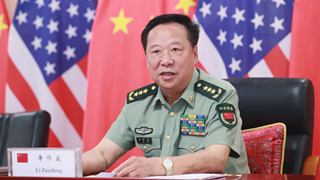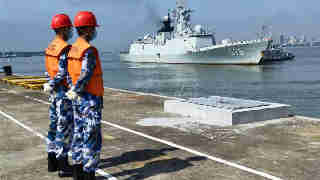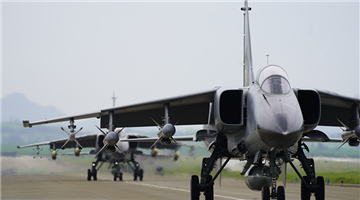By Du Chaoping
ROK's Foreign Minister Park Jin visited Japan from July 18 to 20. This is the first visit by a ROK foreign minister to Japan since December 2017. Relations between the ROK and Japan fell to a freezing point after the former ruled that Japanese companies should compensate for forced labor and Japan retaliated with export controls. Park Jin's trip to Japan was described by the ROK media as an "ice-breaking trip", and the Japanese media also said that Seoul showed a positive intention to improve bilateral relations. However, Rome wasn't built in a day. It is difficult to resolve the inherent contradictions between the two sides in just one visit, and the relationship between the two countries may not be able to get out of the trough in the short term.
Strong willingness to improve bilateral relations
Recently, ROK President Yoon Suk-yeol, who took office recently, changed his predecessor's foreign policy toward the Democratic People's Republic of Korea (DPRK) and declared that if the DPRK's provocation was detected, he would fight back with the support of the US. At the same time, Seoul's overall foreign policy has turned to comprehensively strengthening the ROK-US strategic alliance. Repairing the relationship with Japan has been listed as an important policy content by Yoon Suk-yeol to meet the requirements of the US to strengthen the trilateral security cooperation among the US, Japan and the ROK. To this end, Yoon said that the bilateral relations between the ROK and Japan should be handled in a "future-oriented" way. Park Jin's visit to Japan this time is Seoul's latest effort to ease relations with Tokyo and it showed Seoul's strong willingness to improve ROK-Japan relations.
The three-day visit is packed. Park Jin held talks with Japanese Foreign Minister Yoshimasa Hayashi, and then called on Japanese Prime Minister Fumio Kishida to convey President Yoon Suk-yeol's wishes to improve bilateral relations. Afterward, Park offered his condolences to Shinzo Abe, and met with Toshimitsu Motegi, secretary-general of the Liberal Democratic Party, and former Prime Minister Yoshihide Suga.
Among them, the meeting with Yoshimasa Hayashi received the most attention. During the two-and-a-half-hour meeting, the two exchanged views on issues such as jointly dealing with the DPRK nuclear issue, labor claims, bilateral relations improvement, and the deepening of Japan-US-ROK cooperation. The two sides agreed to work more closely on dealing with DPRK's nuclear weapons and missiles, including negotiating the resumption of the General Security of Military Information Agreement.
Deep-seated problem difficult to resolve
Foreign media believes that compared with Moon Jae-in and Shinzo Abe, Yoon Suk-yeol and Kishida Fumio will make the prospect of easing relations more realistic. Recently, the relationship between the two countries has gradually eased, and political and economic exchanges between the two sides are also recovering. Japanese media claimed that diplomatic interactions between the ROK and Japan to explore improvement in relations may become more frequent in the future.
Analysts pointed out that the visit of the ROK’s foreign minister can certainly raise a little temperature in the cold relationship between the two countries, including possibly injecting impetus into resolving issues left over from history. However, due to the intractable historical crux, the interference of real contradictions, and the antagonism of national sentiments, it is difficult to improve ROK-Japan relations significantly in the short term.
The World War II forced labor claims issue, for example, has received the most attention in bilateral relations. The claims dispute has been entangled between the two countries for many years, and there is no solution so far. The dispute is around a 2018 ruling by a ROK court, which required Nippon Steel and Mitsubishi Heavy Industries to compensate ROK workers for forced labor. However, the two Japanese companies refused to comply. The former laborers and their supporters then demanded a forced sale of the two companies' assets in the ROK.
Park Jin and Yoshimasa Hayashi agreed to work on solving the problem but did not propose a specific plan. During the meeting, Park Jin said he would seek to resolve the dispute before the two companies assets in the ROK were sold while Yoshimasa Hayashi said the two sides needed to build a constructive relationship based on the normalization of relations in 1965. Previously, the Japanese side insisted that all compensation issues were resolved when relations between the two countries were normalized. As the ROK and Japanese diplomats were discussing this issue, the ROK's Newsis reported that Mitsubishi Heavy Industries refused to admit that it had forced the ROK’s laborers, causing strong dissatisfaction among the people in the ROK. In addition, issues such as "comfort women" and Japan's constitutional revision also affect the sensitive nerves of the ROK people. All these indicate that the road to improvement in ROK-Japan relations will not be smooth.











